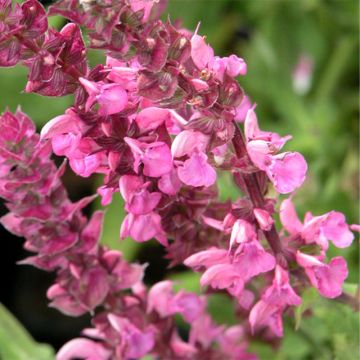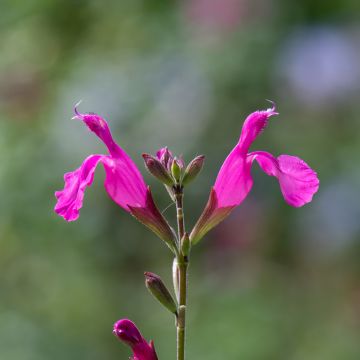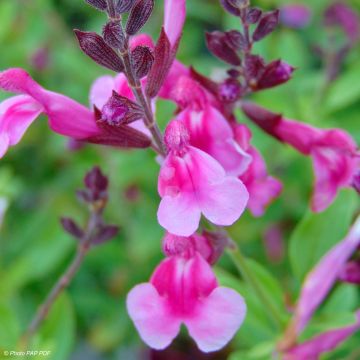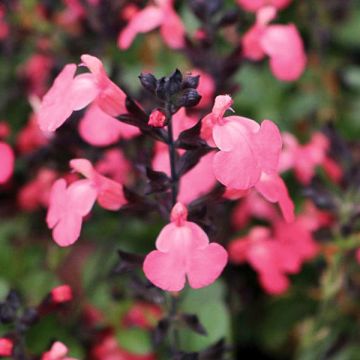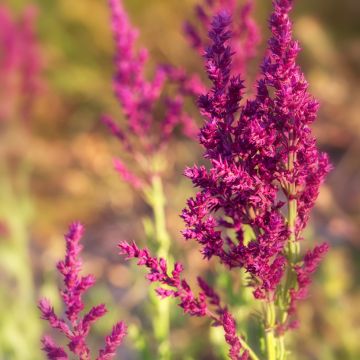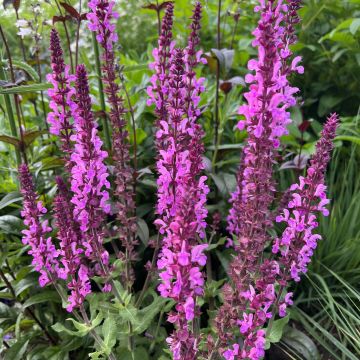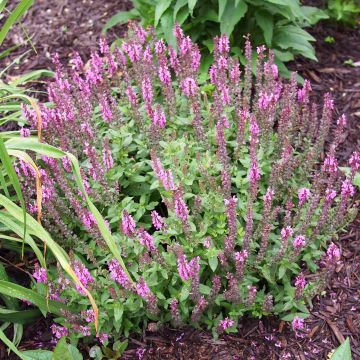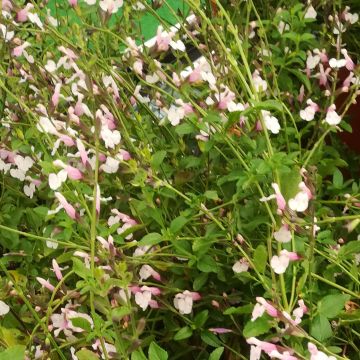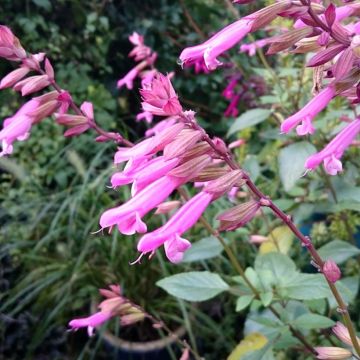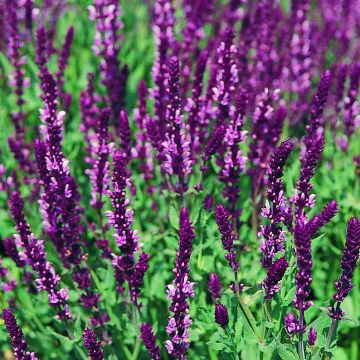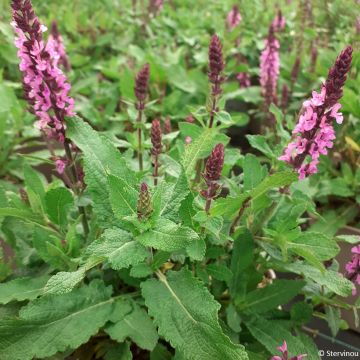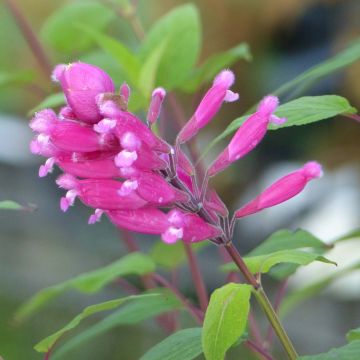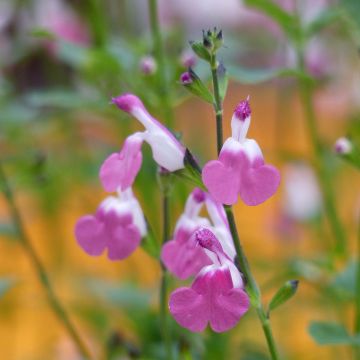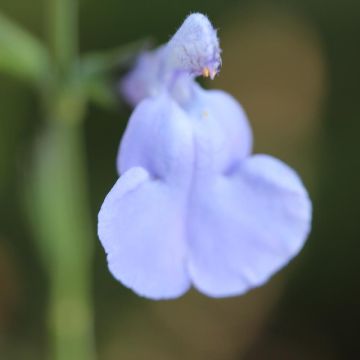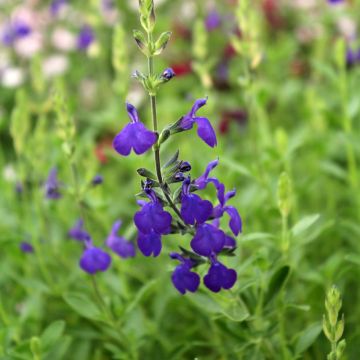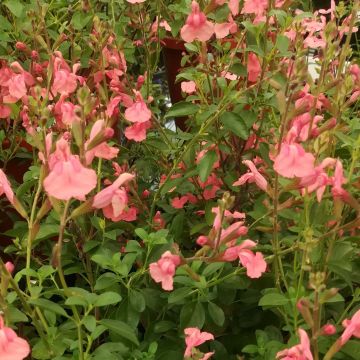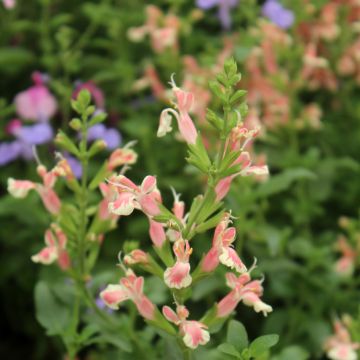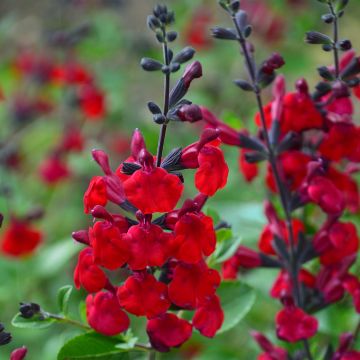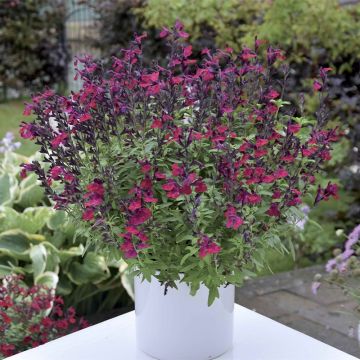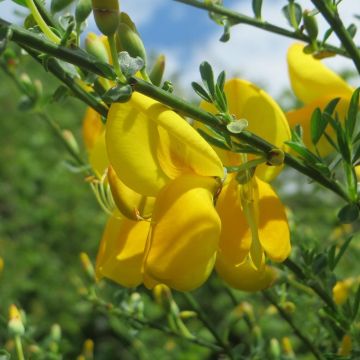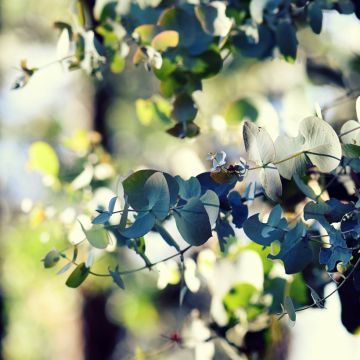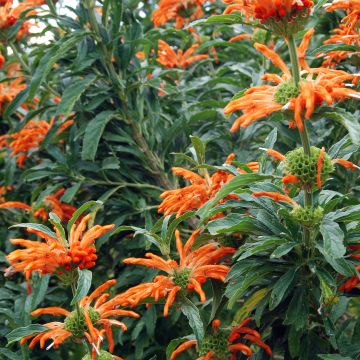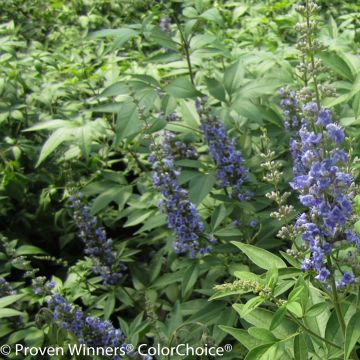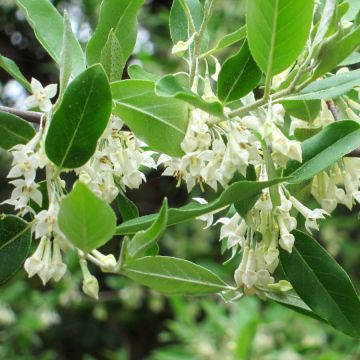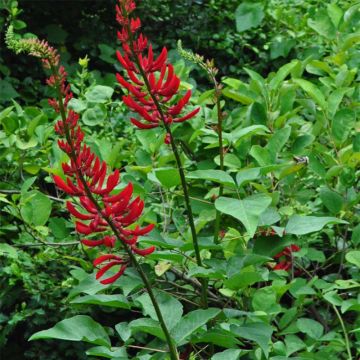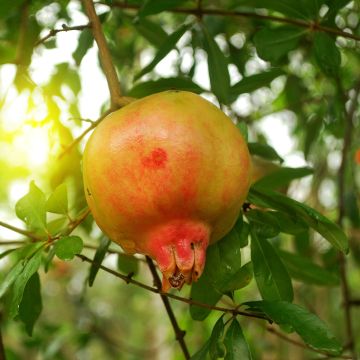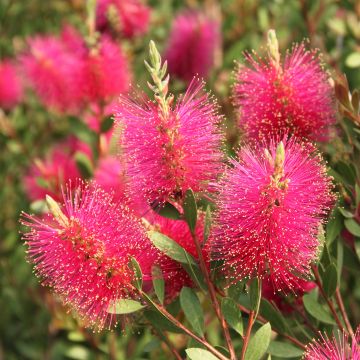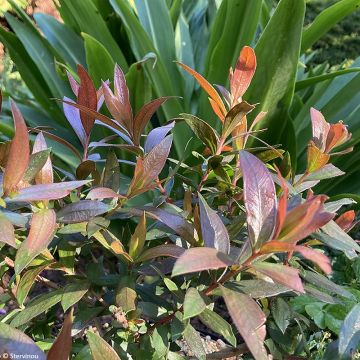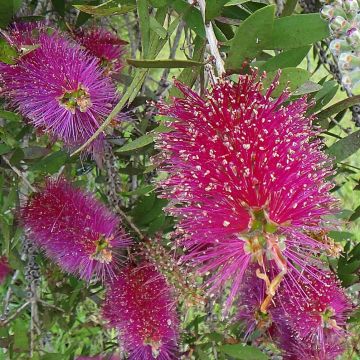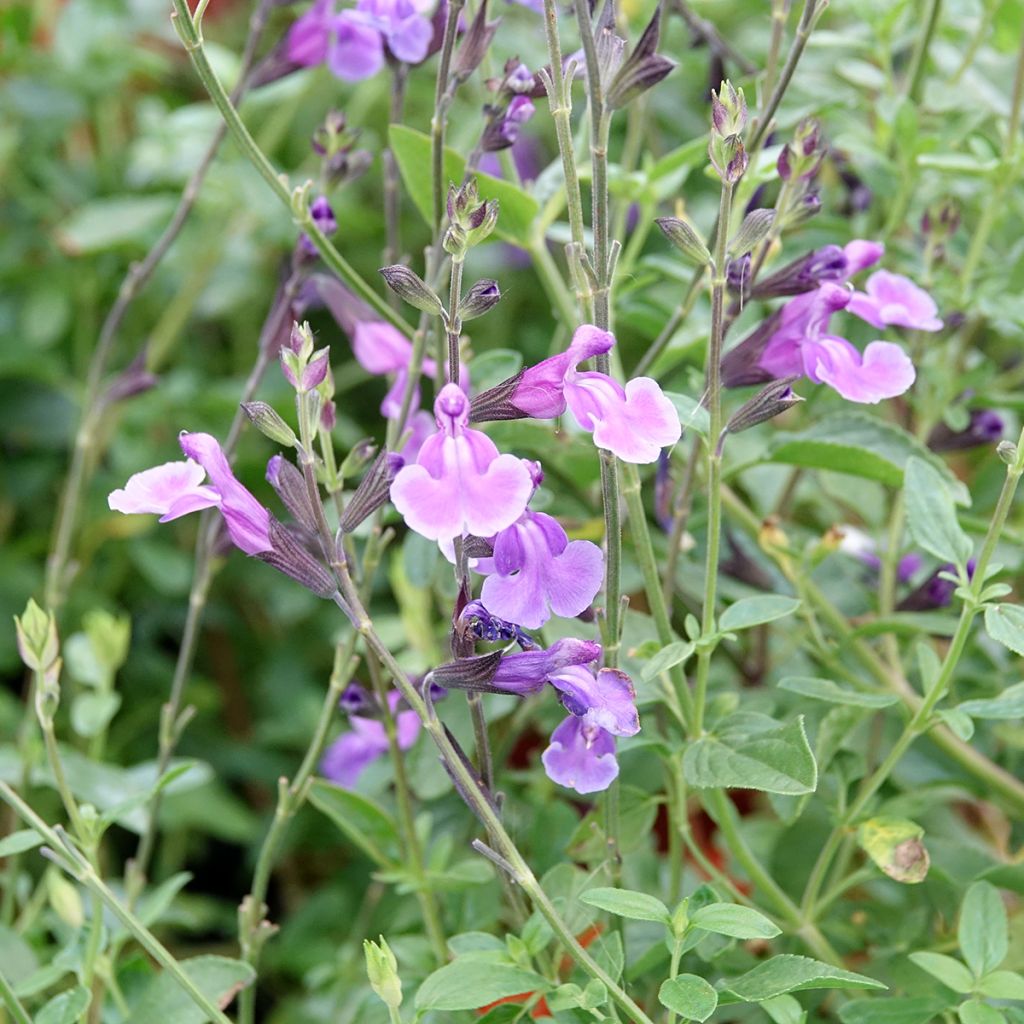

Salvia x jamensis Carolus - sauge arbustive
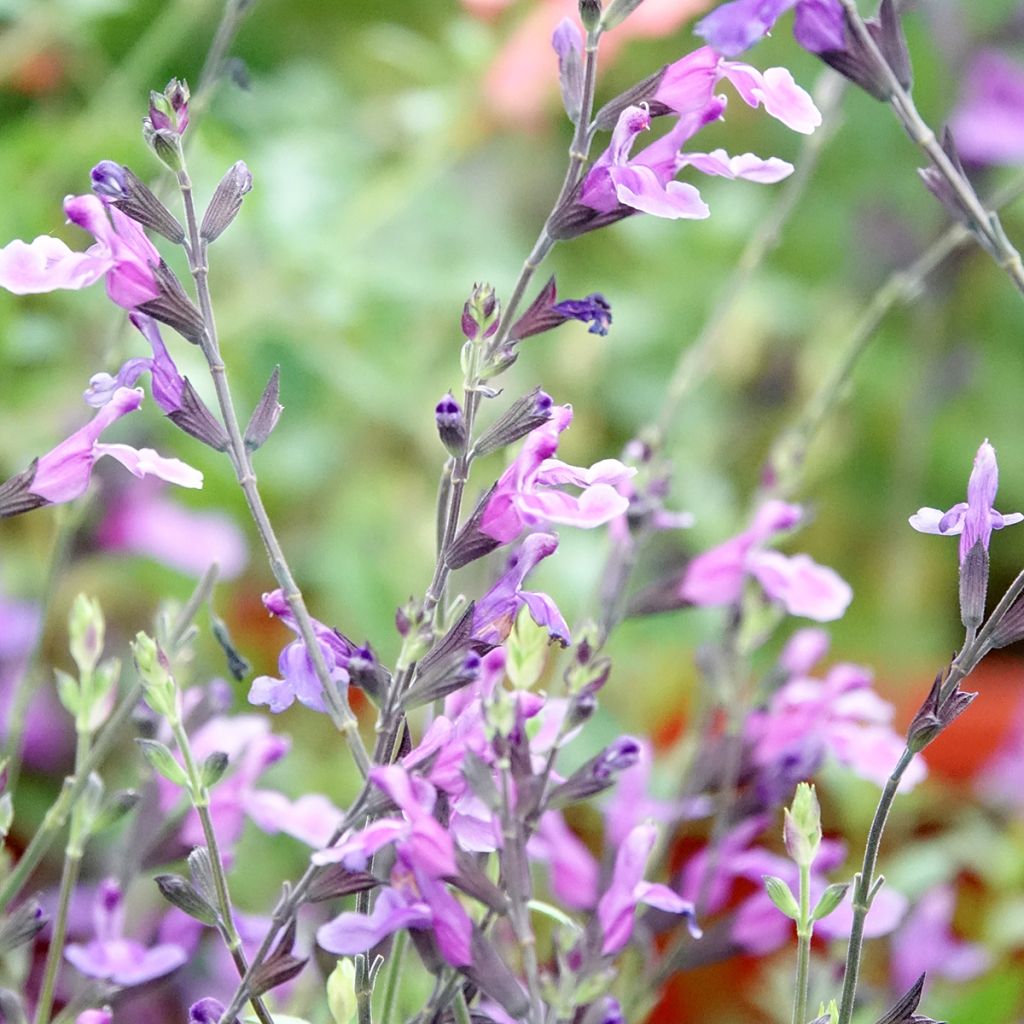

Salvia x jamensis Carolus - sauge arbustive
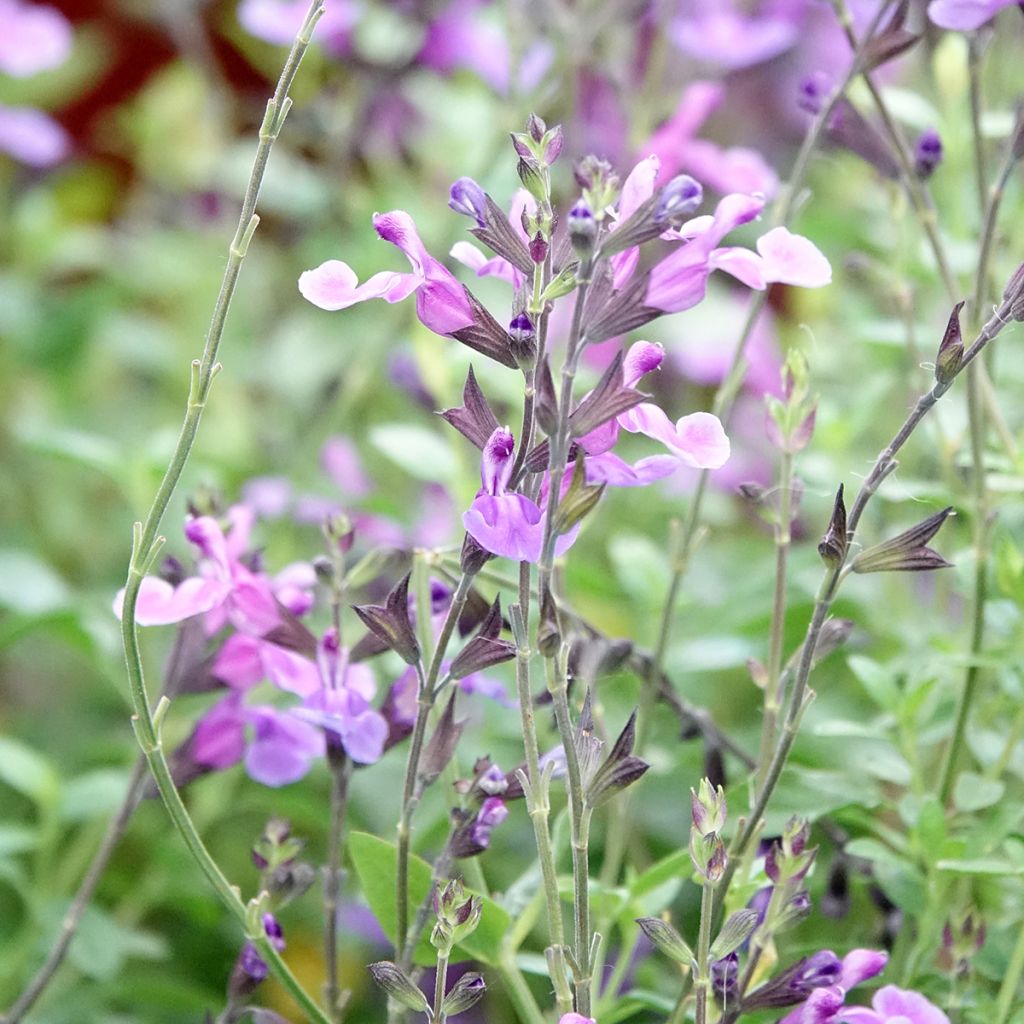

Salvia x jamensis Carolus - sauge arbustive
Salvia jamensis Carolus
Salvia x jamensis Carolus
Sage
Why not try an alternative variety in stock?
View all →This plant carries a 12 months recovery warranty
More information
We guarantee the quality of our plants for a full growing cycle, and will replace at our expense any plant that fails to recover under normal climatic and planting conditions.
From €5.90 for pickup delivery and €6.90 for home delivery
Express home delivery from €8.90.
Delivery to Corse prohibited: UE law prohibits the import of this plant from mainland France to Corse as part of the fight against Xylella fastidiosa. Please accept our sincere apologies.
More information
Does this plant fit my garden?
Set up your Plantfit profile →
Description
The Salvia 'Carolus' is a brand new shrubby sage with pale mauve flowers and a slightly darker heart, from June to autumn. Its floribundity and its semi-evergreen aromatic foliage make it a precious ally for sunny and warm terraces and gardens. Robust but moderately hardy, it will need protection in cold regions.
The 'Carolus' sage belongs to the large Lamiaceae family, which offers gardeners many aromatic and ornamental plants (thyme, rosemary, catmint, agastache, etc.). This variety comes from a group of salvias native to the mountains of Central America, which gives them an honorable hardiness of about -10°C (14°F). These salvias are woody: their stems harden and form wood, which will however be damaged by strong frost, especially in cold climates. The foliage, semi-evergreen in mild climates, is small and ovate, and delightfully aromatic, with hints of mint and lemon. This fragrance is particularly pronounced in hot and dry weather, and the essential oils often make the leaves slightly sticky.
Between June and October (or even later if the weather is mild), 'Carolus' sage produces many small flowers of delicate lilac mauve, with a slightly deeper heart. It will reach about 70 cm (28in) in height and 80 cm (32in) in width.
The origins of 'Carolus' shrubby sage make it well adapted to sunny, dry, and rocky (even limestone) soils, but moderately hardy: it will grow without problems in mild and warm climates, but will require winter protection if the temperatures in your region frequently drop below -10°C (14°F) - in that case, prefer container cultivation, to be brought indoors as soon as frost is announced. If you want to plant it outside in a cold region, make sure to provide it with a well-protected location sheltered from cold winds. You can also mulch its base, but be careful not to choose a material that retains too much moisture: prefer a mineral mulch such as gravel, as excess winter water would be fatal to it. If the summer is very dry, 'Aphrodite' sage can possibly receive watering to support its flowering, always taking care not to excessively wet its base. You can prune it short at the end of winter to densify the plant, but do not do so before the last frosts have passed.
Perfect in rock gardens, dry beds, and pots, this sage will form beautiful combinations with other salvias such as Salvia microphylla 'Amethyst Lips' or Salvia nemorosa 'Schwellenburg'... It can also be combined with dry-loving perennials such as White Cloud calamint, Corsican Spurge (Euphorbia myrsinites), or the Lillipop Pink Gaura.
Report an error about the product description
Salvia jamensis Carolus in pictures
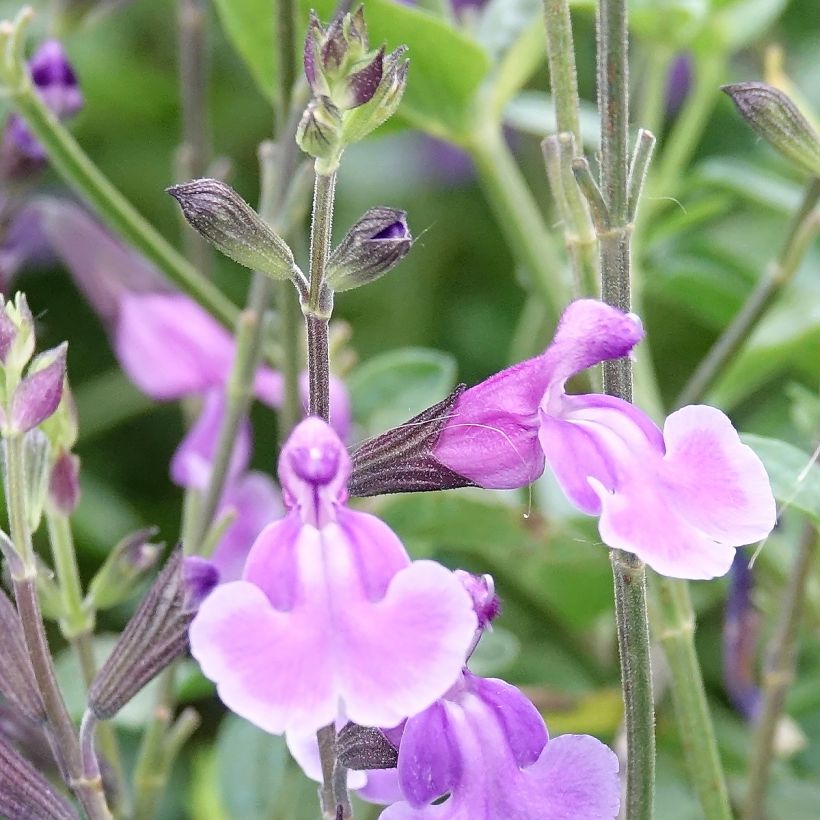

Flowering
Foliage
Plant habit
Botanical data
Salvia
x jamensis
Carolus
Lamiaceae
Sage
Cultivar or hybrid
Other Salvia - Bushy Sage
Planting and care
Plant Salvia 'Carolus' after spring frosts in cold climates, in September-October in warm climates. Place it in a light, ordinary, porous, rocky soil, even limestone, not too poor to support its flowering. This plant prefers sunny situations, or partial shade in warm climates. It requires regular watering in autumn and spring if the weather is very dry in order to flower abundantly. In very poor soil, incorporate a little well-decomposed compost or leaf soil. Mulch it in winter, in the coldest regions, isolate it from the cold as much as possible. Place it in the warmest corner of the garden, in full sun against a south-facing wall, in a rocky or sandy slope, any substrate that does not retain moisture, which would be fatal for it in winter. Under these conditions, it can withstand short frosts of around -10/-12°C (14/10.4°F). It thrives when grown in a pot, allowing continental gardeners to store it for the winter.
This sage does not have any specific enemies or diseases in our gardens.
Planting period
Intended location
Care
This item has not been reviewed yet - be the first to leave a review about it.
Mediterranean shrubs
Haven't found what you were looking for?
Hardiness is the lowest winter temperature a plant can endure without suffering serious damage or even dying. However, hardiness is affected by location (a sheltered area, such as a patio), protection (winter cover) and soil type (hardiness is improved by well-drained soil).

Photo Sharing Terms & Conditions
In order to encourage gardeners to interact and share their experiences, Promesse de fleurs offers various media enabling content to be uploaded onto its Site - in particular via the ‘Photo sharing’ module.
The User agrees to refrain from:
- Posting any content that is illegal, prejudicial, insulting, racist, inciteful to hatred, revisionist, contrary to public decency, that infringes on privacy or on the privacy rights of third parties, in particular the publicity rights of persons and goods, intellectual property rights, or the right to privacy.
- Submitting content on behalf of a third party;
- Impersonate the identity of a third party and/or publish any personal information about a third party;
In general, the User undertakes to refrain from any unethical behaviour.
All Content (in particular text, comments, files, images, photos, videos, creative works, etc.), which may be subject to property or intellectual property rights, image or other private rights, shall remain the property of the User, subject to the limited rights granted by the terms of the licence granted by Promesse de fleurs as stated below. Users are at liberty to publish or not to publish such Content on the Site, notably via the ‘Photo Sharing’ facility, and accept that this Content shall be made public and freely accessible, notably on the Internet.
Users further acknowledge, undertake to have ,and guarantee that they hold all necessary rights and permissions to publish such material on the Site, in particular with regard to the legislation in force pertaining to any privacy, property, intellectual property, image, or contractual rights, or rights of any other nature. By publishing such Content on the Site, Users acknowledge accepting full liability as publishers of the Content within the meaning of the law, and grant Promesse de fleurs, free of charge, an inclusive, worldwide licence for the said Content for the entire duration of its publication, including all reproduction, representation, up/downloading, displaying, performing, transmission, and storage rights.
Users also grant permission for their name to be linked to the Content and accept that this link may not always be made available.
By engaging in posting material, Users consent to their Content becoming automatically accessible on the Internet, in particular on other sites and/or blogs and/or web pages of the Promesse de fleurs site, including in particular social pages and the Promesse de fleurs catalogue.
Users may secure the removal of entrusted content free of charge by issuing a simple request via our contact form.
The flowering period indicated on our website applies to countries and regions located in USDA zone 8 (France, the United Kingdom, Ireland, the Netherlands, etc.)
It will vary according to where you live:
- In zones 9 to 10 (Italy, Spain, Greece, etc.), flowering will occur about 2 to 4 weeks earlier.
- In zones 6 to 7 (Germany, Poland, Slovenia, and lower mountainous regions), flowering will be delayed by 2 to 3 weeks.
- In zone 5 (Central Europe, Scandinavia), blooming will be delayed by 3 to 5 weeks.
In temperate climates, pruning of spring-flowering shrubs (forsythia, spireas, etc.) should be done just after flowering.
Pruning of summer-flowering shrubs (Indian Lilac, Perovskia, etc.) can be done in winter or spring.
In cold regions as well as with frost-sensitive plants, avoid pruning too early when severe frosts may still occur.
The planting period indicated on our website applies to countries and regions located in USDA zone 8 (France, United Kingdom, Ireland, Netherlands).
It will vary according to where you live:
- In Mediterranean zones (Marseille, Madrid, Milan, etc.), autumn and winter are the best planting periods.
- In continental zones (Strasbourg, Munich, Vienna, etc.), delay planting by 2 to 3 weeks in spring and bring it forward by 2 to 4 weeks in autumn.
- In mountainous regions (the Alps, Pyrenees, Carpathians, etc.), it is best to plant in late spring (May-June) or late summer (August-September).
The harvesting period indicated on our website applies to countries and regions in USDA zone 8 (France, England, Ireland, the Netherlands).
In colder areas (Scandinavia, Poland, Austria...) fruit and vegetable harvests are likely to be delayed by 3-4 weeks.
In warmer areas (Italy, Spain, Greece, etc.), harvesting will probably take place earlier, depending on weather conditions.
The sowing periods indicated on our website apply to countries and regions within USDA Zone 8 (France, UK, Ireland, Netherlands).
In colder areas (Scandinavia, Poland, Austria...), delay any outdoor sowing by 3-4 weeks, or sow under glass.
In warmer climes (Italy, Spain, Greece, etc.), bring outdoor sowing forward by a few weeks.

































